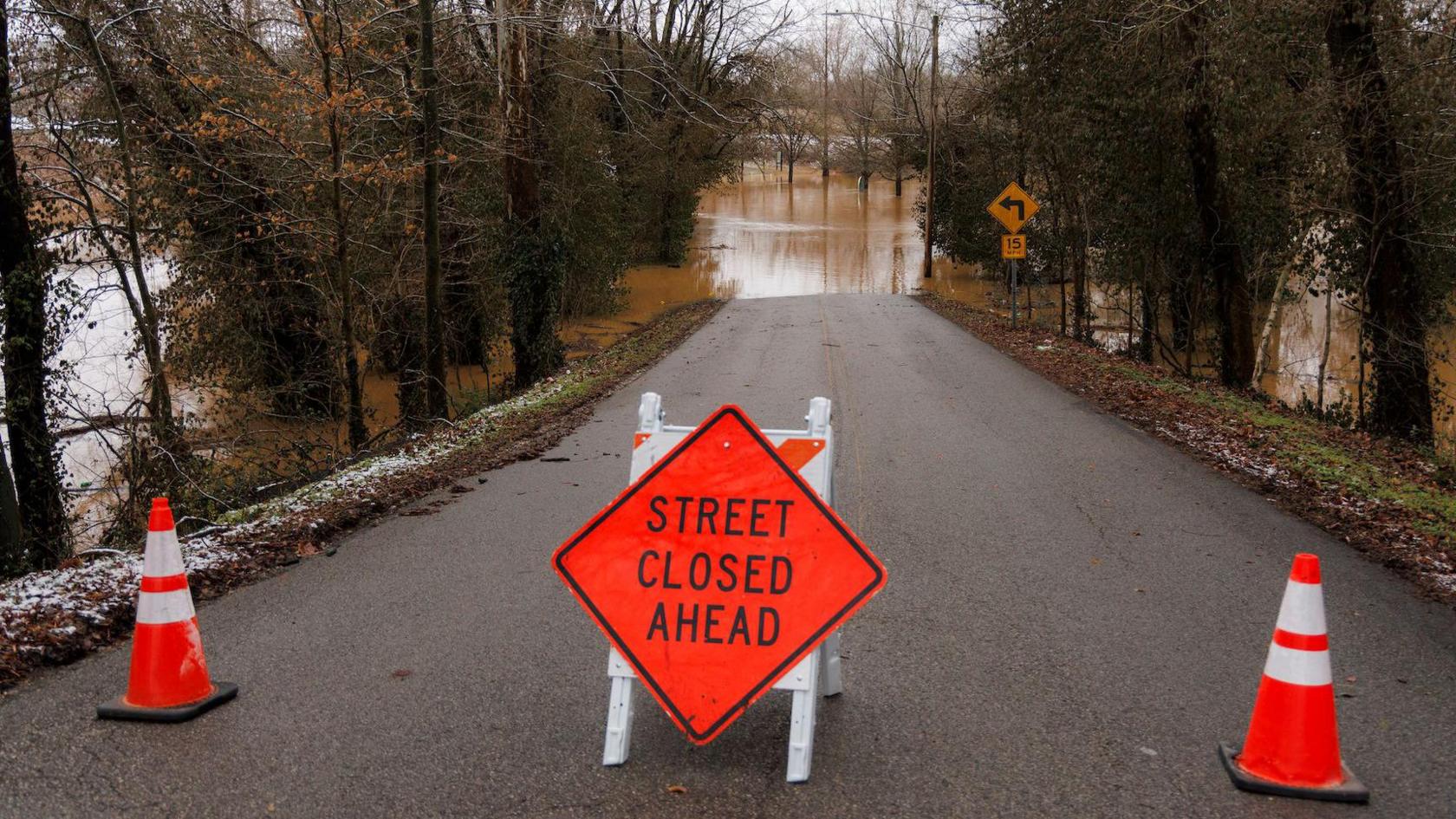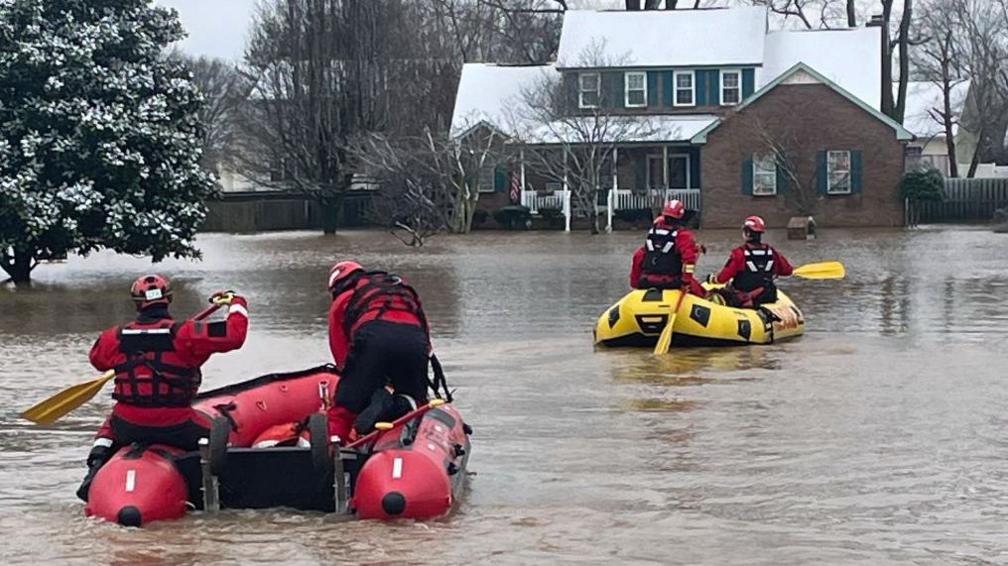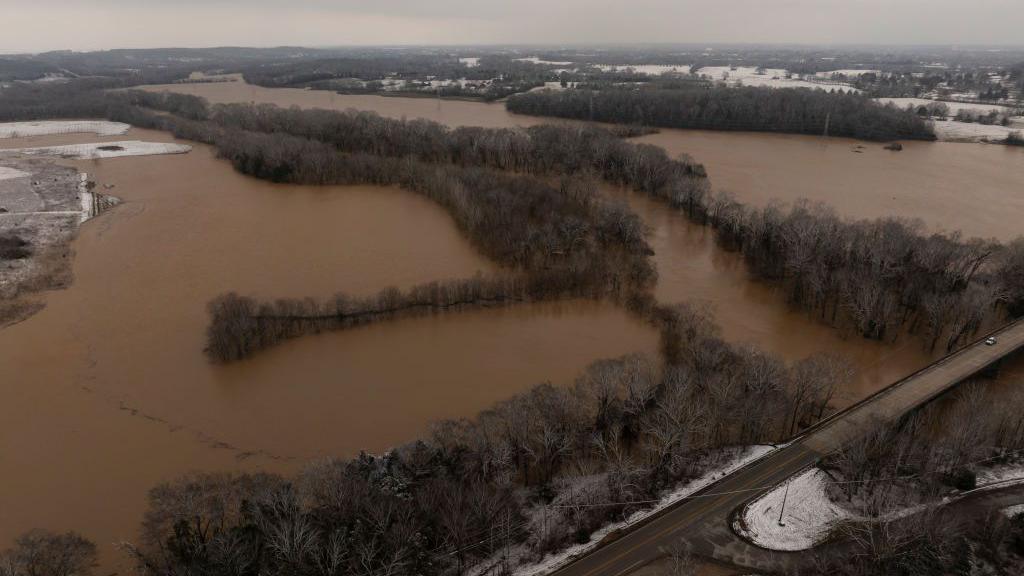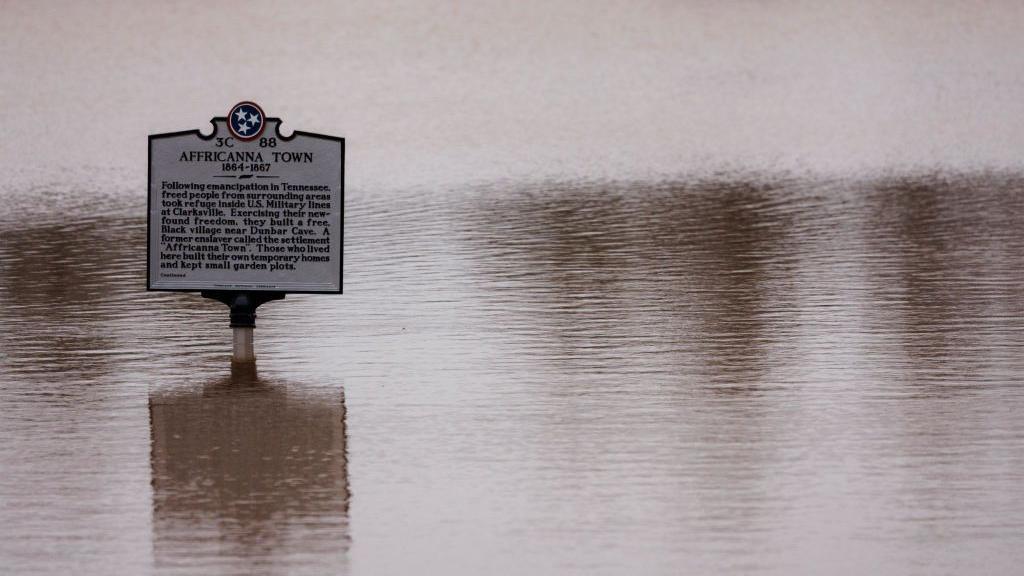Extreme weather in US leaves thousands without power

Flash floods have caused travel issues in many southern US states
- Published
Hundreds of thousands of people are without power in the United States as extreme storms have hit parts of the country.
Schools have shut in some areas as a result of the weather too.
States in the South-East of the US have had days of really heavy rain, leading to flash floods.

The Clarksville Fire Rescue team in Tennessee used dinghies to conduct rescue missions in the state
Flash floods are floods that happen very quickly in low-lying land, and they're usually caused by very heavy rain or when water can't be absorbed quickly enough.
Now there is a cold snap is on the way in the affected region, with temperatures due to drop to as low as -42 degrees Celsius in some areas.
- Published28 September 2024
- Published31 August 2023
- Published14 December 2017
Where has been affected by the weather?

Kentucky (pictured here) was one of the worst affected states
Kentucky, Georgia, Alabama, Mississippi, Tennessee, Virginia, West Virginia and North Carolina were all under some type of storm-related alert over the weekend.
Almost all of those states were also badly affected by Hurricane Helene in September 2024.
Parts of Kentucky and Tennessee received up to 15cm of rain over the weekend - and the effects will "continue for a while", according to the National Weather Forecaster in the US.
Tornado watches have also been issued in five states: Alabama, Florida, Georgia, Mississippi and Tennessee.
What's being done?

A number of states have declared emergencies
In Kentucky, the mayor Andy Beshear asked President Donald Trump to declare an emergency in his state and to release some money to help.
The president approved this request on Sunday.
West Virginia Governor Patrick Morrisey issued his own state of emergency in more than a dozen counties over the weekend.
Kristi Noem, head of the Department of Homeland Security (DHS), which oversees the nation's disaster relief organisation called FEMA, said she had been in contact with the governors of affected states.
"While emergency management is best led by local authorities, we reinforced that DHS stands ready to take immediate action to offer resources and support," Noem said.
